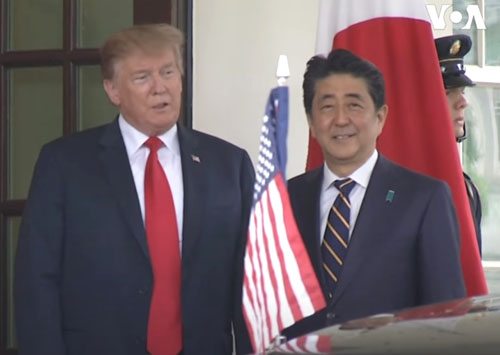WorldTribune, April 23, 2020
Analysis by Paul Crespo
China may lose big as foreign firms relocate out of the country and move elsewhere in the aftermath of the Wuhan coronavirus (COVID-19) pandemic. The Chinese Communist Party (CCP) is most concerned about the large-scale business withdrawal from U.S. and Japanese firms operating in China.

As noted by the Los Angeles Times, a slow U.S. business exodus from China was already underway due to soaring wages in China and U.S. President Donald Trump’s trade and tech wars. Companies such as Apple — which was heavily reliant on China — announced plans last year to diversify their manufacturing.
The LA Times explains that Trump’s punitive tariffs on Chinese imports and the increasingly broad bipartisan support in the U.S. to get tough with Beijing have added to the cost and political pressure for companies operating in China.
But the impact of COVID-19, and China’s poor handling of it, may soon push China’s key place in the global supply chain to a lower rung. The CCP’s obtuse threats to withhold life-saving medicines from the U.S. exposed the chokehold China has on this vital medical supply chain, heightening the need to reduce Western dependence on Chinese pharmaceuticals production.
“A lot of the coronavirus shows the importance of bringing manufacturing back to America so that we are producing at home, the medicines and equipment and everything else that we need to protect the public’s health,” the LA Times cited Trump as saying last week at a White House meeting with drug company executives.
Just as damaging to China, or more so, than U.S. companies withdrawing, is Japan’s current decision to finance the moves of Japanese firms out of China. If the U.S. and Japan, the world’s biggest and third-biggest economies respectively, move away from China, it will have a huge impact on the world’s second-biggest economy, notes the Nikkei Asian Review.
In Chinese Communist Party and state government circles, “there are now serious concerns over foreign companies withdrawing from China,” a Chinese economic source said to Nikkei Asian Review, “What has particularly been talked about is the clause in Japan’s emergency economic package that encourages (and funds) the re-establishment of supply chains.”
Nikkei Asian Review further explains Japan’s bold move:
Signals of (Prime Minister Shinzo) Abe’s new policy were visible as early as March 5. On that date, coincidentally the same day the postponement of Xi’s Japan visit was announced, the Japanese government held a meeting of the Council on Investments for the Future. Abe, who chairs the council, said he wanted high value-added product manufacturing bases to come home to Japan.
At the table were influential business leaders such as Hiroaki Nakanishi, chairman of the Japan Business Federation, the country’s biggest business lobby better known as Keidanren. “Due to the coronavirus, fewer products are coming from China to Japan,” Abe said. “People are worried about our supply chains.”
Abe was not just building on the traditional “China plus one” concept, where Japanese companies add a non-China location to diversify production, he is forming a “shift away from China” policy. Of the products that rely heavily on a single country for manufacturing, “we should try to relocate high added value items to Japan,” Abe added, according to NAR. “And for everything else, we should diversify to countries like those in ASEAN.”
On April 7, the Japanese government formalized Abe’s plan to re-establish supply chains that hit by the pandemic. In its emergency economic package, it earmarked more than 240 billion yen (about $2.2 billion) to aid Japanese companies shift production back home or diversify their production into other countries in Southeast Asia, reported Nikkei Asian Review.
Larry Kudlow, chairman of the White House’s National Economic Council, has also expressed his intention to consider the U.S. government shouldering the relocation costs of American companies returning home from China. It fits with Trump’s “America First” agenda.
U.S. government assistance would be helpful to entice U.S. companies back. Otherwise, while some U.S. firms leaving China will relocate to the U.S., many will consider moving to lower cost countries such as Vietnam, Thailand, Malaysia, Cambodia, India, the Philippines, Indonesia, and Mexico.
China’s reaction to Japan’s actions was immediate. The day after Japan’s relocation plans were announced, Nikkei Asian Review explains, China’s Politburo Standing Committee, the party’s top decision-making body, held a meeting in Beijing. There, supreme leader Xi Jinping expressed his deep concerns over the economic costs of these U.S. and Japanese companies leaving China.
He said that “as the pandemic continues its global spread, the world economy faces a mounting downside risk.” He added, according to Nikkei Asian Review, “Unstable and uncertain factors are notably increasing.”
In his remarks, Xi called for “preparedness in mind and work to cope with prolonged external environment changes,” essentially sounding the call for the CCP to prepare for “a protracted battle” and worst-case scenarios. Things may soon be getting ugly for China.
Intelligence Brief __________ Replace The Media
